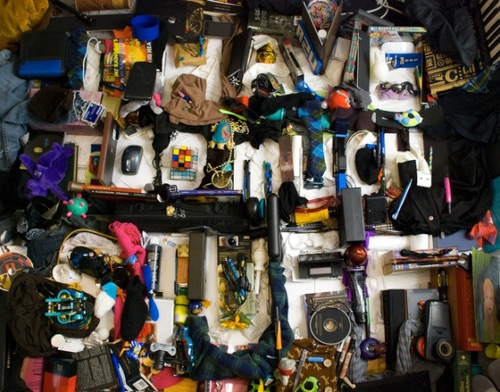STUFF
Quotable Quote: “By using my stuff to enhance my relationship with God and to help others, my stuff becomes a means to happiness in this life and the life to come.”
I have recently been thinking a lot about “stuff.” This is because I have been immersed in things like a major DIY house-renovation project, applying for Social Security, and setting up streams of retirement income. Fortunately, we have friends who are highly skilled in these areas, so they have really jump-started our learning curve. I literally dream about things like electrical outlets and wall texturing. I have learned a whole new set of handyman and financial skills. So, it is little wonder that I have been thinking about “stuff.”
It seems to me that the relationship of the average Christian to the “stuff” of life has been somewhat tense. The question has always been, how do you handle all the responsibilities and cares that come with “stuff” while still being a good Christian? Down through church history there have been three basic approaches to “stuff.” One is what I call “hair-shirt Christianity.” There have always been those who consider money and stuff as either evil or a huge distraction to godly living. Hair-shirt Christians often forswear earthly goods or, in the modern version, simplify their lives down to minimalist living.
Another approach is to compartmentalize. This group ends the tension between Christianity and “stuff” by putting Sunday worship and the rest of life into two separate compartments. Here, Sunday is for God and the rest of the week is for normal life. While hair-shirt Christianity is too extreme for most people, compartmentalizing life from religion doesn’t seem to be a good biblical response to the tension.
The third approach is where people try to find a balance between religious observation and caring for the practical needs that come with life. But, this is where the tension is usually most acute. What is the proper balance? Can Christianity actually be balanced with what Jesus called “mammon” (stuff)?
I want to propose a fourth approach. I call it integration. The key is to integrate Christianity into life as well as the cares that come with stuff. I am going to provide a quote from Aquinas that you may find intriguing. He makes several fascinating observations that I will comment on.
(Summa I-II, Q. 4, A. 7) “I answer that, For imperfect happiness, such as can be had in this life, external goods are necessary, not as belonging to the essence of happiness, but by serving as instruments to happiness, which consists in an operation of virtue, as stated in Ethic. i, 13. For man needs in this life, the necessaries of the body, both for the operation of contemplative virtue, and for the operation of active virtue, for which latter he needs also many other things by means of which to perform its operations.”
Aquinas is mostly writing about “imperfect happiness.” Perfect happiness cannot be attained in this life. Perfect happiness will come when we can contemplate God face-to-face. However, imperfect happiness can be attained by giving God priority and using wisdom in conducting practical affairs. I wrote about this in an earlier post.
He makes the point, that while the essence of happiness is not directly found in “external goods” (stuff), those goods are (1) necessary for life and (2) are to be used for achieving happiness. How are they used for this? How can goods help us achieve imperfect and, ultimately, perfect happiness?
Aquinas actually says that “stuff” (external goods) are necessary in order to achieve imperfect happiness in this life and perfect happiness in the next life. Wow, that is a very different view from that of most Christian authors. Okay, how? What he says is that they are inescapable because we need them to sustain life. Even the strictest hair-shirt Christian needs food and shelter. But, beyond this, Aquinas says that stuff is necessary as “instruments of happiness” because the proper use of them is virtuous. That sounds very religious, huh? Not really. Virtue is a word rooted in the concept of excellence. So, the virtuous use of goods simply means the “excellent” use of stuff.
External goods (stuff) are used virtuously when they provide opportunity to A) contemplate God and His wisdom, and B) to do good things for others. It is that simple. Yet, this is also very profound. When I use my car to take my family or friends to church, I am using stuff in a very excellent way that leads to true happiness.
So, instead of forswearing “stuff” or compartmentalizing my life or trying to find a balance between my faith and stuff, I integrate external goods into my pursuit of true happiness (God). By using my stuff to enhance my relationship with God and to help others, my stuff becomes a means to happiness in this life and the life to come. This requires no balancing act. But it does require thought. Oh, and by the way, your rational ability is the most excellent thing about you. Enjoy your stuff.

